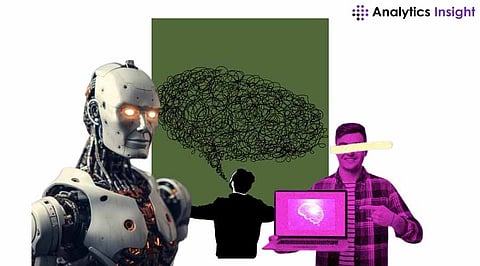

With growing mental health concerns in India, innovative approaches are being developed to address the care gap. AI counsellors are emerging as a breakthrough in mental health care technology, offering accessible and personalised services.
Mental health is a pressing issue in India. According to the National Mental Health Survey, over 14% of adults experience mental health disorders, but few seek help due to the persisting stigma. Traditional counselling services are often limited in reach, particularly given India's population size. This has led to an increased interest in AI-driven mental health solutions.
AI counsellors utilize natural language processing (NLP) and machine learning to offer mental health support. These virtual counsellors are available 24/7, providing immediate assistance when needed. Platforms like Woebot and Wysa have gained popularity for their easy sign-up processes and proven therapeutic effectiveness.
These AI tools offer cognitive behavioural therapy (CBT)-based exercises tailored to individual needs. They analyze user interactions to provide personalized solutions, helping users reflect on their emotions and develop coping strategies. Research indicates that AI interventions can significantly reduce symptoms of mental health conditions, making them an effective complement to traditional therapy.
AI counsellors eliminate geographical barriers. Individuals in rural or underserved areas, where mental health services are scarce, can access AI counselling through smartphones. This is particularly important in India, where most mental health resources are concentrated in urban centres.
Mental health remains a taboo topic in many parts of India, discouraging people from seeking help. AI counselling offers users the anonymity to discuss sensitive issues without the fear of judgment, encouraging more open conversations and improving mental health outcomes.
Mental health treatment is often expensive, making it inaccessible for many. AI counselling platforms, however, offer more affordable alternatives to traditional mental health care services. This increased affordability is crucial for a country where a significant portion of the population struggles financially.
AI counsellors are designed to adapt to individual needs. For people with mild anxiety or depression, these platforms offer easy access to emotional support and symptom management. Users can participate in activities like journaling, mood tracking, and self-evaluation, helping them monitor their mental health progress.
For those hesitant to seek face-to-face therapy, AI solutions provide an alternative by offering information about mental health conditions and potential treatment options.
While AI counselling offers significant advantages, it does have limitations. AI lacks the human empathy and intuition that are crucial in therapeutic roles. Additionally, issues regarding data privacy and the ethical use of AI in mental health must be addressed. Protecting user information and establishing clear guidelines for AI implementation is essential for the successful integration of these tools.
The integration of AI into mental health care shows great promise in India. As AI technologies continue to evolve, their ability to provide personalized support will improve. Given the growing need for mental health care, AI could become a key tool in addressing the mental health crisis in India.
For effective implementation, collaboration between mental health professionals and technologists is crucial. Together, they can develop AI models that are culturally relevant and tailored to India’s diverse population.
AI counsellors have the potential to transform mental health care in India. With accessibility, anonymity, and affordability as their key advantages, AI solutions offer new hope for millions of people in need of mental health support. Given the current mental health crisis in India, technology could play a pivotal role in bridging the gap in care delivery.
